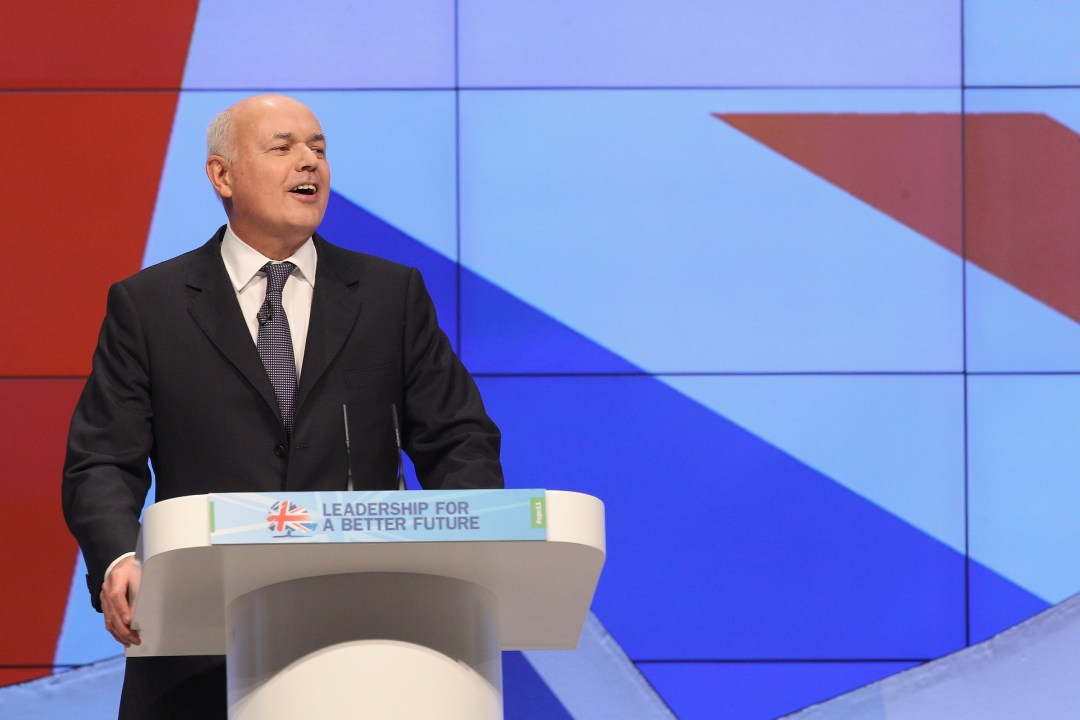It’s the same for celebrities and policymakers: talking about marriage gets you headlines. Hence why the newspapers have concentrated on Iain DuncanSmith’s remarks today that ‘marriage should be supported and encouraged’ by the state.
But there were two other parts of IDS’s speech — and the ‘social justice strategy’ document behind it — that I found more arresting. The first was his incisive
attack on the Gordon Brown approach to fighting poverty (define it statistically and then massage the statistics so that they work in your favour), which deserves repeating:
And the second is IDS’s closely related point that ‘For every pound we spend we should be asking — how does it promote LIFE CHANGE?’ In other words, don’t focus on the amount being spent, or on the income decile charts that result from that spending, but on the wider value of a policy to the people it’s meant to help. The strategy document says that the government is working towards measuring such ‘social value’. I imagine that they’ll start by looking at the Centre for Social Justice’s excellent report on the same, Outcome-based Government, released last year.‘First, we have seen a social policy overwhelmingly focussed on moving people above the income poverty line. A laudable ambition surely? Yes, if done in a meaningful and sustainable way. But too often it has been the exact opposite, fuelled by out of work welfare transfers that marginally increase incomes, but do little to change lives. So, for example, we know that between 1998/99 and 2009/10 the likelihood of being in relative poverty declined 1.5 times faster for children living in workless families than for children living in families where somebody worked. This approach isn’t just unambitious, it has been shown to be ineffective. Some £150 billion was spent on Tax Credits between 2004 and 2010, much of which was targeted at families with children. Yet it seems highly unlikely that the previous Government’s target to halve child poverty by 2010 will be hit. We will find out in a few months time when we see the figures for 2010, but predictions — including those from the IFS — suggest that they will have been missed by a wide margin. Moreover, we now know that under the previous Government income inequality rose to the highest level since records began. So the old approach is ineffective. It is also completely unsustainable.’
But what will the Lib Dems think? In truth, while they opposed proposals (£) to scrap the existing ‘child poverty’ measure, Nick Clegg and his party agree that a more nuanced approach to poverty is needed. Indeed, Clegg has been very strong, in the past, in arguing that ‘You cannot measure poverty with a snapshot’. So this is one area where IDS could get what he wants — and too right too. At the very least, it’s more likely than a marriage tax break.







Comments